Primary sources provide direct evidence of an event, attitude, community, or phenomenon. Documents such as letters, diaries, newspaper articles, transcripts, and so on are often considered primary sources. They are distinguished from secondary sources, which are analytical or scholarly sources written about the event in question. Secondary sources often use primary sources as evidence.
From a literary perspective, primary sources are the literary texts you are analyzing. From a historical perspective, primary sources are documents from the time period in question. In the social sciences, primary source may include documents created by the communities in question.
Primary sources are not always completely reliable; they are created by people with a stake in what they describe and may have all sorts of inaccuracies or biases. However, they are a very good way to gain a better understanding of attitudes in a particular time period, or to see how norm were established.
When working with primary sources, especially in historical research, is important to pay attention to the dates they were originally published. Materials published after a date probably didn't influence anything that happened before that date, after all! In general, limiting your search by date is very helpful, but keep in mind that materials are sometimes republished.
The collections listed below emphasize older works. For more current primary sources, you might consider searching by source type. (For instance: are you interested in human rights discourse? The text of human rights laws constitute primary sources, but you'd be more likely to find them in a collection of legal documents rather than what are usually considered "primary source collections.")
The English language changes over time and from community to community. When you are searching for primary sources, keep in mind that most of the resources I'll list below rely on full-text searching; thus, you need to find the words that are likely used in the documents themselves. If you're starting from a work of literature, you might consider some of the words that are used in the work.
If you know the name of a specific person, place, or event, those make very good search terms.
It's also important to think about what kinds of words may actually be used in these texts. For instance, you may be writing about patriarchy, but that word is used primarily in feminist discourse, or in specific historical contexts. However, you might find plenty of evidence of patriarchy by searching words like "marriage" or by finding manuals for women.
There are systematic biases in the kinds of documents that are created, preserved, collected, and made available. Some of them are easy to identify:
Books can be useful because in many cases, scholars may compile collections of primary sources ("sourcebooks") related to a specific theme.
To find these collections, you can search with the word "Sources," which is a subject term in OneSearch used to describe them (and, unfortunately, a few other things).
